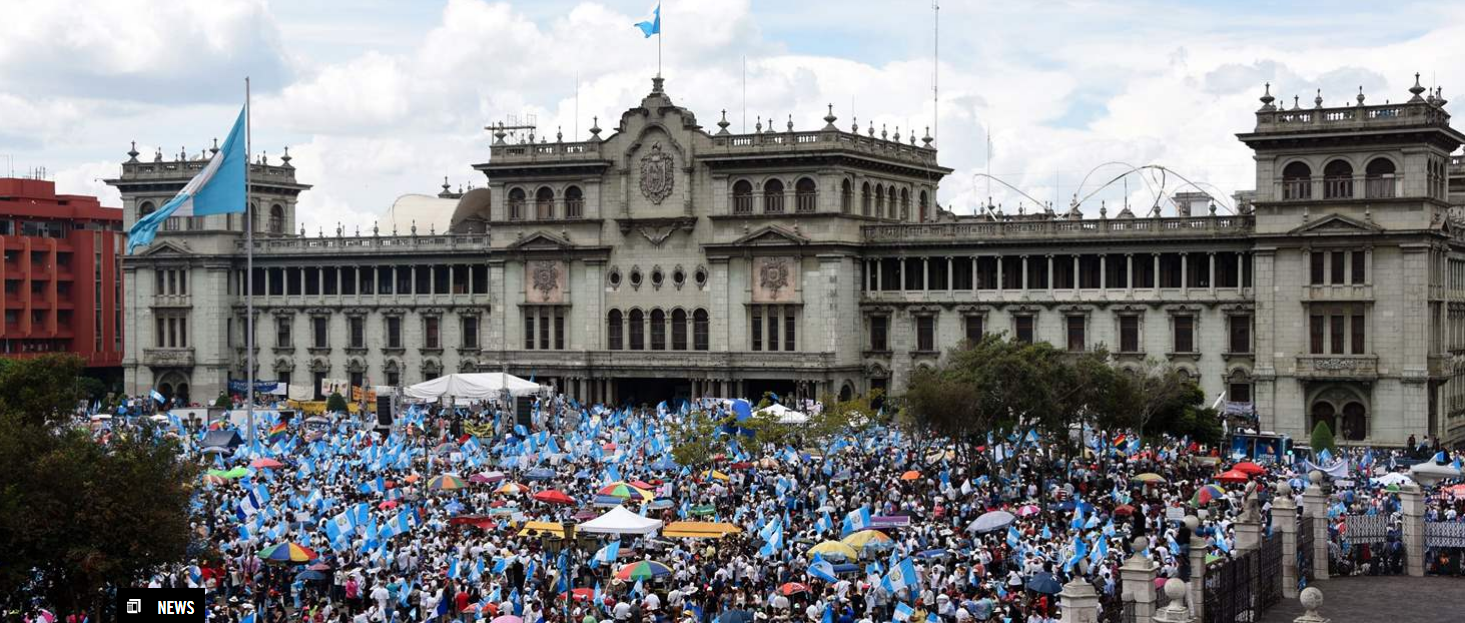Guatemala is on the verge of wiping out more than a decade of efforts to strengthen its criminal justice system and access to justice as a result of recent actions by the country’s highest authorities, Amnesty International warned in a new report released today.
In Last Chance for Justice, the organization exposes the serious setbacks and imminent risks to human rights in Guatemala as a result of measures taken by the Jimmy Morales administration, the Public Prosecutor’s Office led by Consuelo Porras, the judiciary, and the national Congress.
“Access to justice is receiving heavy blows from which Guatemala will not be able to recover unless measures are taken now. The actions being taken by the nation’s highest authorities must be stopped immediately and they must ensure justice for every case of human rights violations,” said Erika Guevara-Rosas, Americas director at Amnesty International.
In the last decade, Guatemala has made remarkable progress in the fight against impunity in the country. Between 2007 and 2018, the International Commission against Impunity in Guatemala (CICIG), a body created under the auspices of the United Nations to support the Public Prosecutor’s Office in investigating criminal structures infiltrated into state institutions, was able to present more than 100 cases, several of them closely tied to human rights violations in the country. At the same time, starting in 2009, Guatemalan courts began to dictate historic sentences against former military commissioners, and members of the police and army – including high-ranking commanders – something that had never happened before.
However, since August 2017, President Jimmy Morales’s government has sought to hinder the work of CICIG. On 31 August 2018, the president announced his decision not to extend CICIG’s mandate, which will end on 3 September 2019. Faced with this situation, Attorney General Consuelo Porras has not taken concrete or timely action to guarantee the continuity of the work of the prosecutor’s offices that collaborate with CICIG, such as the Special Prosecutor’s Office against Impunity (FECI), thus endangering the investigations opened in more than 70 joint cases.
For its part, Guatemala’s Congress has promoted regressive legislative proposals that would guarantee impunity for serious human rights violations committed during the armed conflict and for certain acts of corruption and would limit the right of association and the defense of human rights.
“The Attorney General cannot stop the momentum that has given hope again to thousands of people in the country. She has a great responsibility and obligation to ensure that cases of human rights violations and corruption do not go unpunished. It is time to stop talking and take action to provide the conditions, resources and security that will allow prosecutors to continue the investigations that are underway, so that justice can prevail in Guatemala,” said Erika Guevara-Rosas.
The report shows the need to continue the process of strengthening the capacities of the Public Prosecutor’s Office that began with CICIG, and exposes the state’s inability to guarantee the independence of prosecutors, as well as certain judges who deal with these kinds of cases, who face intimidation, stigmatization and multiple unfounded criminal or disciplinary procedures.
Amnesty International calls on the Guatemalan authorities to put an end to the improper use of criminal proceedings to harass prosecutors, judges and human rights defenders, in order to create an environment in which justice and the defense of human rights can be carried out.
“In the last 10 years, Guatemala has advanced in the consolidation of justice to become an example in the region. However, these setbacks are taking us back to the drawing board, confronting us with the same situations for which the International Commission against Impunity in Guatemala was created in the first place,” said a lawyer interviewed by Amnesty International.
Amnesty International also warns about the deteriorating situation of human rights defenders and freedom of expression in Guatemala. The departure of CICIG and the weakening of justice and human rights institutions means that criminal structures can continue to violate the law with impunity and increases the risk that human rights defenders will suffer further attacks.
For more information or to arrange an interview, please contact Lucy Scholey, Amnesty International Canada (English), + 613-744-7667 ext. 236, lscholey@amnesty.ca
Read more:
Last chance for justice, dangerous setbacks for human rights and the fight against impunity in Guatemala (Research, 9 July 2019)






















